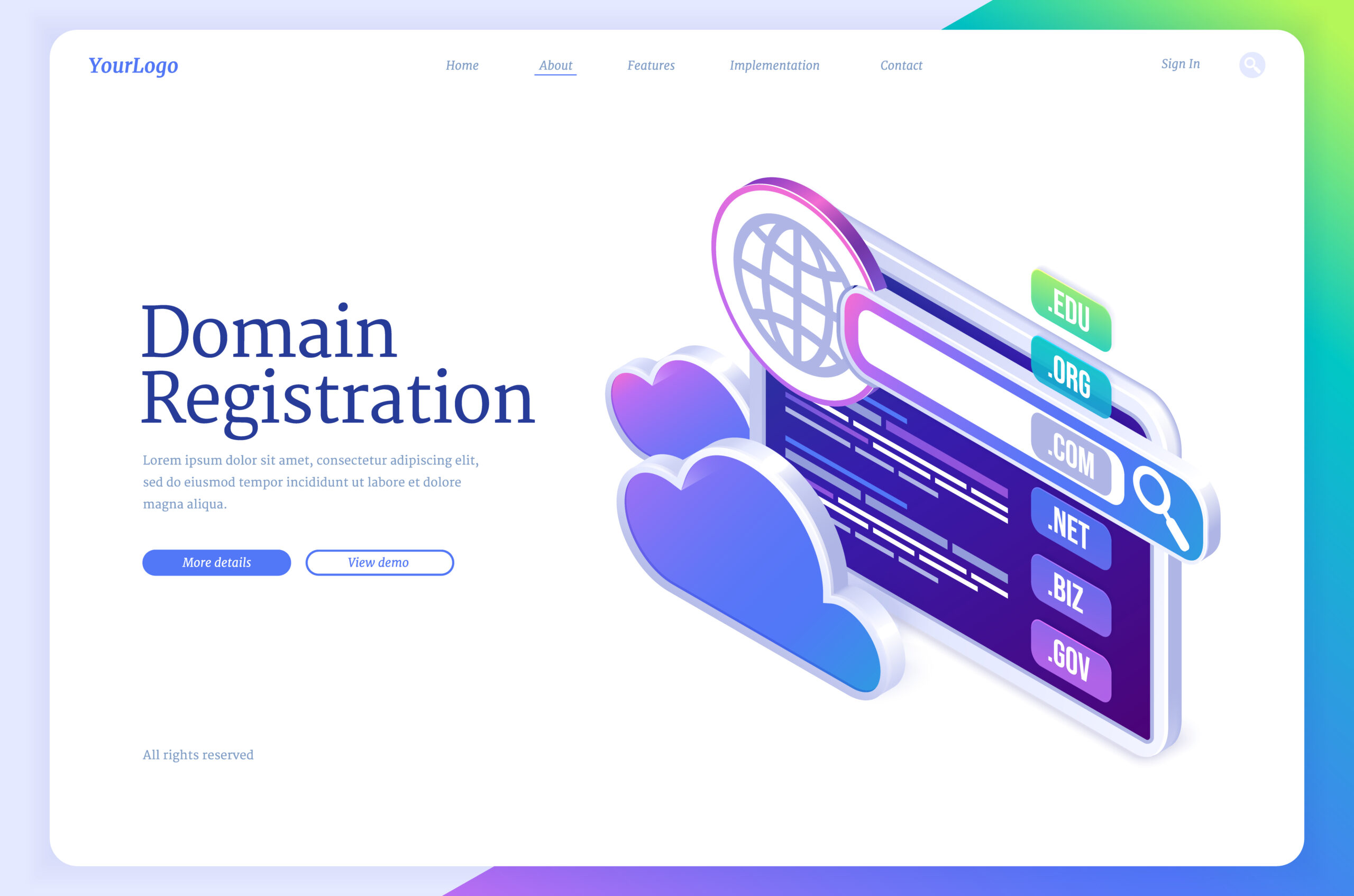Demystifying Domain and Hosting: Your Gateway to the Digital Realm
In the vast landscape of the internet, a domain and hosting are the foundational elements that pave the way for your digital presence. Whether you’re an individual, a small business, or a large corporation, understanding the nuances of domains and hosting is essential. This guide will demystify these concepts, empowering you to make informed decisions for your online endeavors.
1. The Basics: What is a Domain?
A domain is your digital address on the internet, serving as the unique identifier for your website. It’s the user-friendly name that visitors type into their browsers to access your online space. Choosing a relevant and memorable domain is a crucial first step in establishing your online identity.
2. How to Choose the Right Domain Name
Selecting the right domain name involves considering factors such as relevance to your content or business, simplicity, and memorability. Avoid overly complex names, and aim for something that reflects your brand or content focus. Use domain extensions like .com, .net, or .org for a professional touch.
3. Domain Registration Process
To own a domain, you need to register it through a domain registrar. This process involves checking the availability of your chosen domain, providing necessary information, and completing the registration. Domain registration is typically an annual subscription that needs renewal to maintain ownership.
4. Understanding Web Hosting
While a domain is your digital address, web hosting is the virtual space where your website’s files, data, and content are stored. Think of it as renting space on a server that makes your website accessible to users worldwide. Choosing the right hosting provider is crucial for the performance and reliability of your site.
5. Types of Web Hosting
There are various types of web hosting, each catering to different needs:
- Shared Hosting: Affordable and suitable for small websites.
- VPS Hosting: Virtual Private Server offers more resources and control.
- Dedicated Hosting: Entire server dedicated to one user, ideal for large websites.
- Cloud Hosting: Resources are distributed across multiple servers, ensuring scalability and reliability.
6. Factors to Consider When Choosing Hosting
- Performance: Look for providers with reliable servers and good performance.
- Scalability: Ensure your hosting can scale as your website grows.
- Support: 24/7 customer support is essential for addressing issues promptly.
- Security: Opt for hosting with robust security measures to protect your website and user data.
7. Connecting Domain and Hosting
Once you have both a domain and hosting, you need to connect them. This involves updating your domain’s DNS (Domain Name System) settings to point to your hosting provider’s server. This step ensures that when someone enters your domain, they are directed to the correct files on your hosting server.
8. Managing Your Online Space
After the setup, you can start building your website, uploading content, and managing your online space. Use a Content Management System (CMS) like WordPress, Joomla, or Drupal for user-friendly website management.
9. Regular Maintenance and Updates
Regularly maintain your domain and hosting. Keep your domain registration up to date, renewing it before expiration. For hosting, perform routine backups, monitor performance, and update software to ensure a secure and smoothly running website.
10. Troubleshooting Common Issues
Be prepared to troubleshoot common issues such as DNS problems, server errors, or security concerns. Familiarize yourself with the support resources provided by your domain registrar and hosting provider to address any challenges that may arise.
Conclusion: Your Digital Journey Begins Here
Congratulations! You’ve navigated the essential components of domains and hosting, laying the groundwork for your digital presence. Armed with this knowledge, you’re ready to embark on your online journey, whether it’s a personal blog, a business website, or an e-commerce platform.
Frequently Asked Questions (FAQs)
- Can I change my domain name after registration? While it’s technically possible, changing a domain name can be complex and impact your online presence. It’s advisable to carefully choose your domain initially.
- What factors affect website performance in hosting? Factors like server speed, available resources, and the efficiency of the hosting provider’s infrastructure can impact website performance.
- Is it necessary to buy hosting from the same provider as the domain? No, it’s not mandatory. You can purchase a domain from one provider and hosting from another. However, some users prefer the convenience of having both services from a single provider.
- What is a subdomain, and how is it different from a domain? A subdomain is an extension of a domain, allowing you to create separate sections of your website. For example, blog.yourdomain.com is a subdomain.
- How often should I update my website? Regular updates are essential for security, functionality, and content relevance. Aim for consistent updates to provide visitors with fresh and valuable content.
Embark on your digital journey with confidence, armed with the knowledge of domains and hosting. Your online presence awaits!
